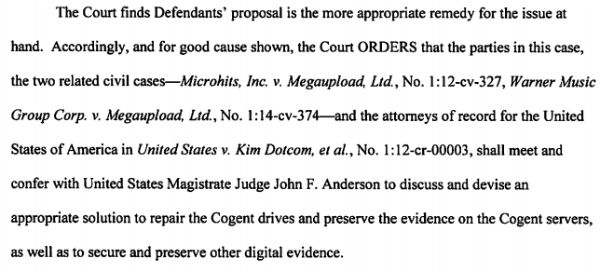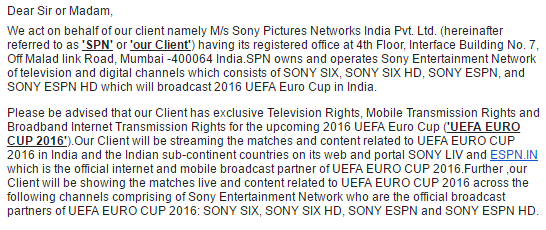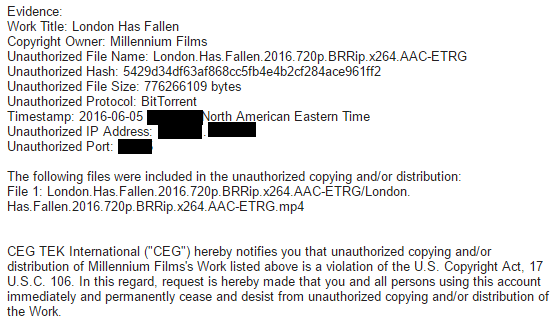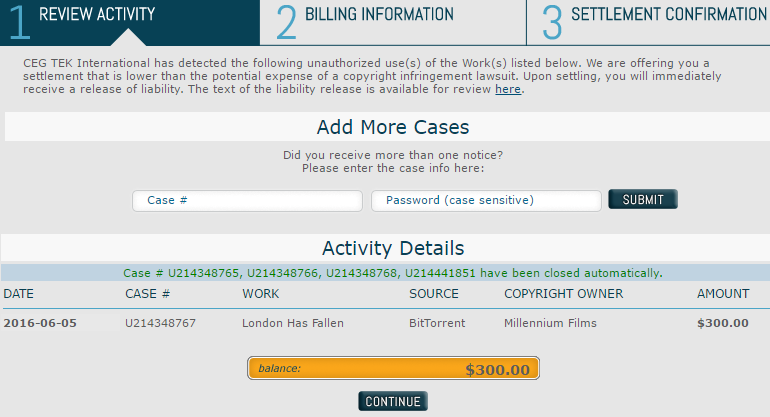Judge: Failing Megaupload Servers Should Be Repaired, Not Copied
samedi 11 juin 2016 à 10:54 Megaupload was shutdown nearly half a decade ago, but data from hundreds of the site’s servers are still in storage.
Megaupload was shutdown nearly half a decade ago, but data from hundreds of the site’s servers are still in storage.
This is also true for the files that were placed at Cogent.
While the original machines are no longer intact, the hosting company has backed up all data which it will keep in storage pending the various lawsuits against the company and its operators.
However, as time has gone by the condition of the harddrives has deteriorated. A few weeks ago Cogent warned that sixteen of them have actually become unreadable, which is a serious concern since they contain important evidence.
To resolve the issue the RIAA and MPAA, representing various major copyright holders, asked if they could preserve a copy of the data themselves. Alternatively, they were also open to bringing in an independent computer forensics vendor, to copy and preserve the data.
Megaupload disagreed, arguing that rightsholders or other outsiders shouldn’t get their hands on possibly privacy sensitive user data, and opted to simply repair the failing disks.
This week District Court Judge Liam O’Grady ruled on the matter at hand. He rejected the copying proposal by the rightsholders, and went with Megaupload’s suggestion instead.

“The Court finds Defendants’ proposal is the more appropriate remedy for the issue at hand,” Judge O’Grady writes in his order.
The Judge instructs all stakeholders in the civil and criminal cases, including the U.S. Government and Cogent, to come together and agree on a repair process.
“[All parties] shall meet and confer with United States Magistrate Judge John F. Anderson to discuss and devise an appropriate solution to repair the Cogent drives and preserve the evidence on the Cogent servers, as well as to secure and preserve other digital evidence.”
While none of the parties are likely to disagree to a repair, they do have to determine who should pick up the tab.
Megaupload previously said that it doesn’t have the financial resources to do so, and suggested that either the copyright holders or the Government must take care of this. The Government is unlikely to pay though, and previously said that it no longer has an interest in the data.
The fact that the recent filings in the Megaupload proceedings are about data loss is exemplary of the slow progress in the cases, which are still a long way from trial.
Last December a New Zealand District Court judge ruled that Kim Dotcom and his colleagues can be extradited to the United States to face criminal charges. This decision was appealed and will be heard later this summer, so until then not much is expected to happen.
Source: TF, for the latest info on copyright, file-sharing, torrent sites and ANONYMOUS VPN services.

 In a few hours the
In a few hours the 
 Many Hollywood insiders see online piracy as a major threat, but only very few are willing to target file-sharers with lawsuits or settlement demands.
Many Hollywood insiders see online piracy as a major threat, but only very few are willing to target file-sharers with lawsuits or settlement demands. 

